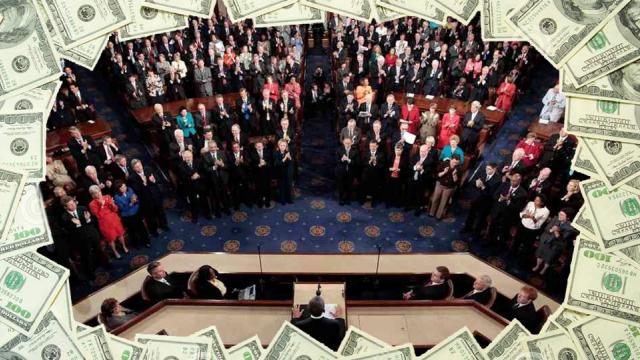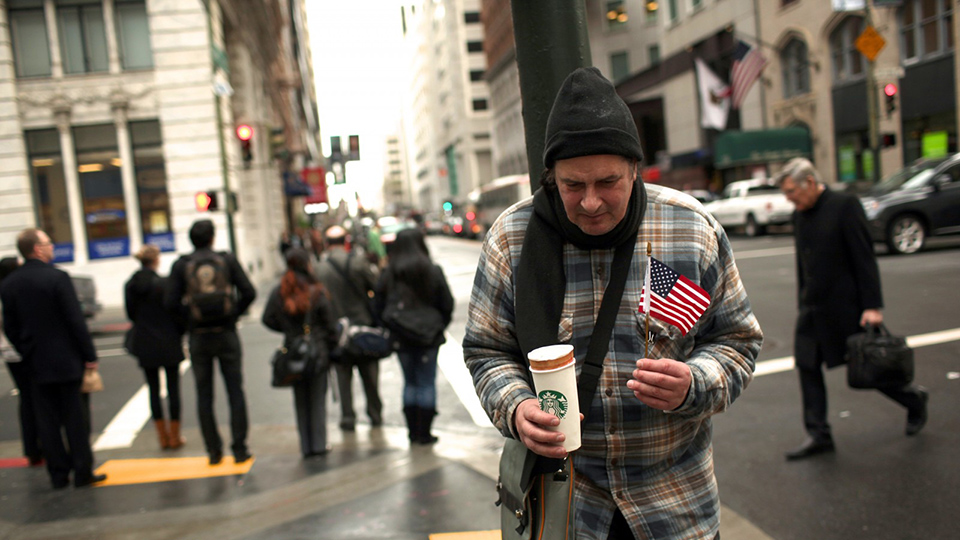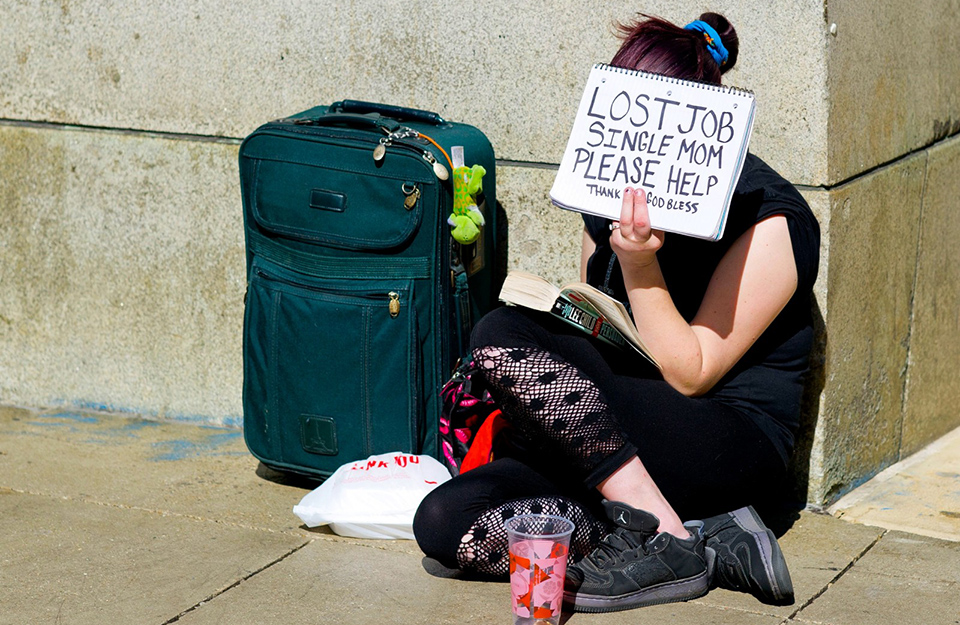
There were a dozen eggs, three mangoes and six black plums, and that was a problem. The family in the bodega line would have to cut something from the bags waiting on the checkout belt — the modest haul overspent the Women, Infants, Children food-assistance voucher good for only a portion of their appetite. The clerk removed three plums and placed them on the far side of the register, declining an offer of safekeeping from a family member she deemed had other intentions.
Perhaps you’ve seen a similar case of nutritional triage; perhaps you’ve experienced it yourself. In the age of increased economic segregation, though, there’s a good chance you haven’t. If you grow up in suburbia and live in higher-income urban enclaves, as I have, EBT food purchases — and the resulting sacrifices — are likely alien. Following deliberations about food assistance and other poverty programs is no substitute for watching human need contend with stark reality.
But my personal understanding is mostly inconsequential. Whether the officials in charge of poverty policy understand it is more important. Given the acceleration of economic segregation and monetization of elections, the chances are slim. On issues of the most basic needs, politicians have the least experience — and that comes at a cost.
For the first time, more than half of the members of Congress are millionaires. Nearly 200 are multimillionaires. One hundred are worth more than $5 million; the top-10 deal in nine digits. The annual congressional salary alone — $174,000 a year — qualifies every member as the top 6 percent of earners. None of them are close to experiencing the poverty-reduction programs — affordable housing, food assistance, Medicaid — that they help control. Though some came from poverty, a recent analysis by Nicholas Carnes, in his book "White Collar Government: The Hidden Role of Class in Economic Policymaking," found that only 13 out of 783 members of Congress from 1999 to 2008 came from a “blue-collar” upbringing. None of them have experienced that poverty in decades; those who did did so under vastly different public-policy circumstances.
This is both a shocking and expected state of affairs: the likelihood of poor or recently poor representatives in a democracy is slim. Political office most often comes through compounding connections, where a more-than-middle-class family, influential college peers, work associates, and other social and religious communities all provide a network of resources that ensures the connected become the elected. The endless need to fundraise among those connections — and to foster new ones — means that the majority of governance takes place within elite communities. As Sabrina Siddiqui and Ryan Grim report in the Huffington Post, fundraising takes up an “obscene portion of a typical day” for a member, four to five hours — and that was before the McCutcheon v. FEC decision opened campaign finance even further. Time in Washington is disproportionately spent fixated on the needs and desires of America’s wealthiest citizens.
Time in their home districts is equally embedded in affluence. Not only are representatives themselves far from poor — they have become far from the poor. The elected are only slightly more likely to encounter poverty at home than they are on the Hill. The increased economic segregation of American neighborhoods means that members of Congress are less likely to mingle with poor, though Democrats tend torepresent districts with greater inequality (and greater wealth) than Republicans. Not only are they not using food assistance — they probably don’t shop in places where it’s used. Many members of Congress live in wealthy enclaves, use expensive healthcare services, and send their children to private or high-income schools.
Consequently, America’s political elite is often woefully out of touch with economic reality for those living in poverty — or even those struggling to stay out of it. Former Representative Tom Perriello, writing in Democracy, recounts one example where their cloistered wealth contributed to their politics:
During the 2010 lame-duck session, Congress passed an $858 billion tax-cut extension, leaving in place generous [Bush-era] tax breaks for the wealthiest Americans. Why was such an opportunity to address inequality and spur economic growth via our tax code missed? ... Most of those who prevented the bill from getting a vote before the election privately argued that the income threshold was too low. In conversations, many would tell me variations of the claim that “250,000 a year is middle class in my district.” Such claims were, of course, wildly exaggerated. Even in the richest district in the country, Virginia’s 10th, over 80 percent of residents fall below that level. Moreover, Perriello adds, politicians’ personal experience couldn’t be ignored: “We were talking about the tax bracket most members of Congress were in before getting elected, and to which they imagined returning one day.” Whether it was the proximity of politicians to wealth (optimistically) or monetary self-interest (cynically), many officials were concerned with protecting wealth because that is what they knew.
Apply this concern for wealth and the wealthy over political time, and the status of poverty and poverty spending in the U.S. logically follows: It’s largely ignored. As Eduardo Porter notes in the New York Times, “Few things are better at conveying what a nation really cares than how it spends its money.” The U.S. spends among the lowest on the poor per capita in the OECD, is the least effective at reducing poverty, and consequently, faces the largest poverty problem. Measured by the official poverty measure, poverty now is no lower than the level of nearly 50 years ago. Measured by the supplementary-poverty measure (which takes transfers into account), poverty had decreased significantly until 2000 but hasn’t declined since. While the poor continue to struggle, political outcomes have been more favorable for elites. Recent research by professors Martin Gilens and Benjamin Page concludes that American policy is disproportionately influenced by, and consequently benefits, moneyed interests. Given the circumstances of the decision makers, and their interest in remaining decision makers, this is a predictable outcome.
Accordingly, there are only a few members of Congress that have gone out of their way to advocate for the poor. Democrats Jim McGovern of Massachusetts and Barbara Lee of California come to mind, and Republican Paul Ryan of Wisconsin has been discussing poverty frequently in the last year. More often than not, when their peers think about poverty and how to address it they do so with an abstract detachment grounded in an analytical, financial, and wonkish perspective. A recent House Budget Committee hearing convened by Paul Ryan, for example, called “A Progress Report on the War on Poverty: Lessons from the Frontlines” did not even invite testimony from anyone actually living in poverty. Even when the discussion ostensibly turns to the front lines, the human face of poverty is absent. Without a presence of poverty in their lives, politicians don’t come to witness or understand the realities on the ground — and perplexingly, few observers seem to advocate that this needs to change.
On other issues, experience is deemed one of the most enviable characteristics for our elected officials. In times of war we seek veterans to lead and for troubled economies we want a proven hand, but the experience of poverty has never been held in as high esteem.
We can’t expect effective and humane policy without representatives who understand, witness, and investigate the experience that they control. The forces that act on people living in poverty would act on the rest of us the same way, as Sendhil Mullainathan and Eldar Shafirargue in their book, "Scarcity: Why Having Too Little Means So Much.} Poverty of all types — of time, mental bandwidth, and money — features a mindset of scarcity, where making the right choices are harder, and outcomes are bleaker.
Temporary forays into a form of poverty help show what it’s like to face scarcity — and why it’s hard to break out of it. Politicians ought to physically encounter the circumstances of their constituents, to observe the trials of the most needy, and most importantly to experience the conditions themselves. This isn’t a new suggestion, but its original iterations haven’t been taken seriously.
Periodic attempts to bring attention to poverty through assuming poverty oneself — eating off a SNAP (food stamp) budget or sleeping outside — are regularly ridiculed as publicity stunts, but the impact on the participants is far from cosmetic. Representative Stewart McKinney, a Republican who led the Great American Sleep Out in 1987, helped pass landmark legislation and fundamentally alter many participants’ experience (he also ultimately lost his life to pneumonia contracted during a stay near Capitol Hill).
The SNAP Challenges, where participants eat on a food-assistance budget, have formed lasting impressions on the members of Congress willing to take part. Separated from their political connotations, this shouldn’t be surprising. Sleeping outside in 20 degree weather, or in a homeless shelter, or eating less and eating worse leave fundamental physical impressions that can supersede partisan affiliations (at least if given the chance). Participants in SNAP challenges, find it hard to focus, report more irritability, and perform worse at their tasks. This might inform skeptical members of Congress who believe current services are adequate or believe individual initiative is all that’s required to overcome poverty. Like my more basic experience of witnessing a transaction, immersions in poverty constitute a fundamentally different form of education.
It’s not surprising that many of the champions for the poor rely on personal experience. Barbara Lee, a coordinator of the food-stamp challenges on the Hill, was once on the program. McGovern has repeatedly engaged in similar exercises — recently spending a night in a homeless shelter. As a young man, Lyndon Johnson taught in a school in dire poverty; the experience formed a lifelong commitment to fighting it. There are exceptions to the rule. Franklin Roosevelt, immensely important in caring for the poor, never suffered anything close to poverty (though he did give great credit to a schoolteacher who taught that caring for the less fortunate was a duty). Not all advocates must experience poverty, but witnessing and understanding any difference firsthand is often a precondition to authentic empathy.
Of course, a one-time jaunt in to poverty can’t emulate the real thing. As Mullainathan and Shafir quip, “One cannot take a vacation from poverty. Simply deciding not to be poor — even for a bit — is never an option.” Our elected officials will still know that their warm bed awaits them the next night, that their favorite foods will return the next week, that they are assured prosperity for the coming years. Their attempts to understand poverty will be, at best, incomplete.
Until larger economic trends are reversed, however, stopgap measures are the only resort. If taking food-stamp challenges, trying public housing, and engaging with the poorest Americans doesn’t sound brilliant or terribly original, that’s fine. Encouraging a regime of experiential immersions is difficult to propose, hard to implement, and even harder to ensure success.
But at this point, visiting the bodega and considering the plums might be the best chance left.
3 WAYS TO SHOW YOUR SUPPORT
- Log in to post comments

















